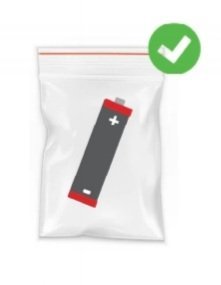I disagree with the concept of a blanket ban. There's clearly been a shift in coughpier batteries popping up causing the problem. Improving manufacturing standards would be a better solution overall as you end up with less trash and coughpy quality products in general. The coughpier stuff aren't just a danger on planes but in general.
All a blanket ban does is encourage the uptake of the battery pack rental business which likely would aim for the cheapest packs - which goes to helping create more demand for the coughpier products. Or maybe even just buying a cheap pack at destination then binning it at the airport when leaving.
A well built battery should be very very unlikely to catch on fire. Remember our phones is also a battery and its not like the battery in our phones are magically vastly different chemically to the ones in battery packs. It's just that they're built to higher standards.
The proliferation of battery banks was well and truly after scares of low quality, dangerous phone batteries; see Samsung Galaxy Note 7.
If it seemed so easy that a good phone battery should lead on that a good battery bank is easy to produce, then I guess we're not seeing it.
Part of it, of course, is capitalism (and the certain desire to create something that encourages the immediate gain of money but might not go the distance in use, usually perpetrated by a certain culture) demands making things for the lowest cost in order to maximise profit. Can't imagine any battery manufacturer asking, "Do you think what we're making is safe?" (At best, the answer is, "Yeah, well it passed the QA test, right?")
The airline industry may not have the patience to wait for the overall industry that makes battery banks to pull their socks up and stop selling essentially indiscriminate firebombs to unsuspecting customers. Commercial aviation is one of the few parlances where policy will overshoot and only "correct" slowly afterwards. They know that everyone is just going to have to comply, so they're not exactly thinking about how this will impose on anyone. And it seems some people in the thread couldn't care less anyway ("who needs battery banks?"), and they know this, so that cuts out a large swathe of the potential resistance.
Any ban is also going to result in airline staff or airport security calling out and attempting to remove batteries which aren't impacted by any such ban.
They could ban Li-ion batteries and result in people trying to claim that NiMH and alkaline are subject to a ban.
They could ban batteries over 200Wh, then claim that 100Wh batteries aren't allowed.
There are already airport security staff who get "upset" when you tell them you don't have an ipad after they say "do you have an ipad". They assume that all tablets are ipads. Tell them that batteries of x type and capacity are banned and they'll assume that any battery they come across are of that type and capacity.
Don't doubt this at all. They weren't all that good in the first stages of the LAG control; some couldn't even tell that 50 mL is less than 100 mL, or if the volume isn't in fl oz then it was no good (be damned if it was in metric). With them trying to discern something that requires some modicum of technical knowledge, forget it.
I'm not sure which authorities would err on the side of allowing versus erring on the side of confiscating, though I do know that 99% of the time that raising a dispute may be detrimental to your legal, mental and/or physical existence.
My skin in the game? I need a portable battery bank to use my CPAP in-flight. It's a special battery bank that provides enough DC power to run my CPAP machine, but it is still under the 100 Wh limit. It also happens to have a USB-A port for secondary charging. The bank can't be charged via USB - it can only be charged via the DC-in port (common with the CPAP DC port). If that is banned from in-flight use then I guess I'll just have to snore and have apnea episodes.















